The Moon Landing: 50 Years Later, Hollywood Remembers That Small Step & The Giant Leap
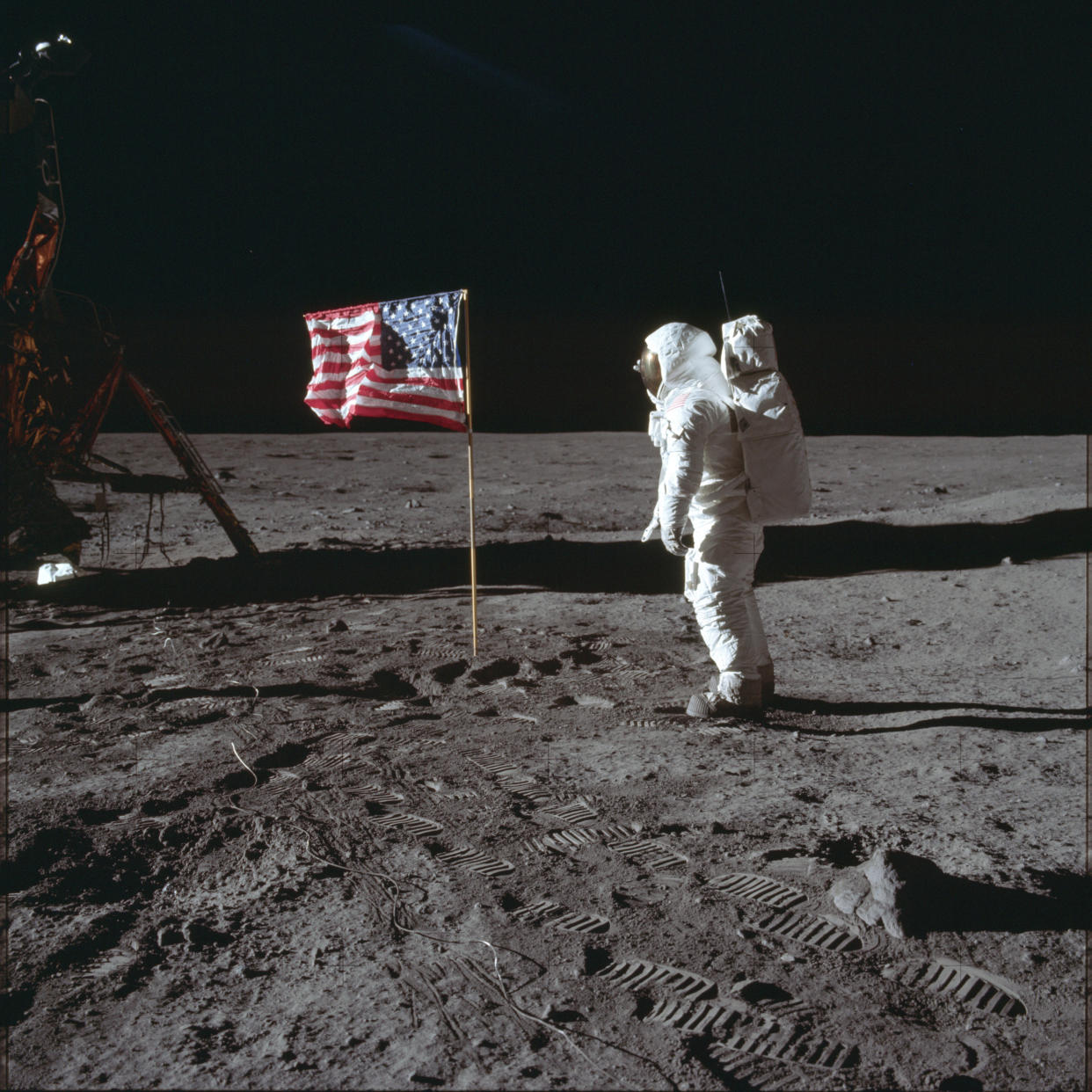
Click here to read the full article.
A half a century ago tomorrow, Apollo 11 landed on the Moon with a pledge that they “came in peace for all mankind.”
As seemingly all of the human race watched, six hours after the Eagle had landed, Neil Armstrong took that remarkable “one small step for man, one giant leap for mankind” and became the first person to walk on the surface of another celestial body.
More from Deadline
Celebrating the Apollo 11 crew of Armstrong, Buzz Aldrin and Michael Collins and the amazing achievement of NASA, we reached out to some of Hollywood’s leading creatives and a network news anchor to hear their perspective on one of the greatest days in history. Please share your thoughts on the moon landing with us too.
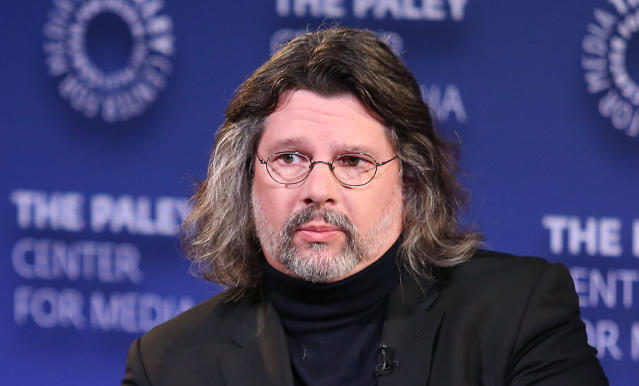
RONALD D. MOORE
Battlestar Galactica, Outlander & For All Mankind EP
I was five years old when my parents gathered me and my one year old brother Michael into our living room in San Clemente to watch the moon landing on our black and white TV. I didn’t really know or understand what was going on at first, but then Mike literally stole the show anyway by taking his first steps simultaneously with those of Neil, much to my parents’ delight and amazement — an event that would live in family legend for decades — and so I don’t have any memory of the exact moment of the first steps on the moon or hearing that it was actually “one giant leap.” But after the celebration of Mike’s historic steps finally died down, I do remember staring at the TV screen and being captivated by the idea that I was literally watching people moving around on the moon and trying to understand how that was possible. That night, and for many nights after, I looked out my window and tried mightily to see the astronauts or their spaceship on the shining face of silver in the sky.
I was hooked. I started watching all the subsequent Apollo missions and started writing letters to NASA with my own spaceship drawings enclosed. NASA then fed my growing obsession by sending me back color photos and booklets describing the wonders of the program and yet more wonders yet to come. That led directly to be searching for anything to do with space on TV and that led eventually to my discovery of Star Trek and my life’s path was fixed.
The moon landing inspired me. It made me lift my eyes to the heavens and dream of things that might be. I’m not alone in that experience. In my opinion, the Apollo program was worth every dime, every bit of effort this country expended in pursuit of that colossal achievement. It inspired, and continues to inspire, millions of Americans and millions of people here on the good ship Earth and will always stand as a beacon pointing to the way to the future. You can’t put a price on that.
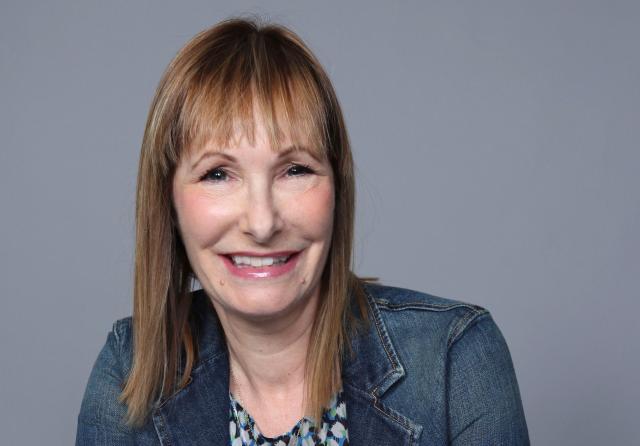
GALE ANNE HURD
Terminator, Aliens & The Walking Dead EP
I remember the night so well. My family and I were up at our cabin in Barton Flats (within the San Bernardino National Forest) which didn’t have electricity or running water. We found a neighbor (I can’t recall his name) who had electricity, and a TV, and we watched with his family. It turns out that he worked for a company that provided parts for the Apollo 11 program, and after we all cheered the successful moon walk, he gave me an official Apollo Moon Landing patch. At the time, it really did feel like America was moving forward into a bright future: truly the sky was no longer the limit.
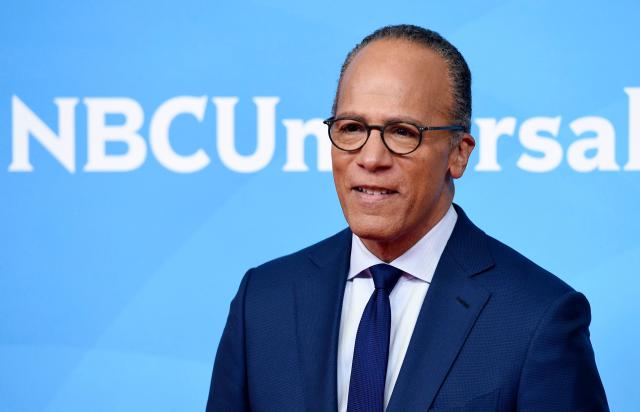
LESTER HOLT
NBC Nightly News & Dateline NBC, Anchor
In July of 1969 my family was living on an Air Force Base outside of Anchorage Alaska. Live national TV coverage was something we rarely saw. Even the network evening newscasts were normally recorded and the tape was flown up from the lower 48 every night for an airing around 10pm, unless the flight was for some reason delayed or canceled.
My father had purchased our first color TV shortly before the Apollo 11 mission. We all gathered around watching the lunar landing, mostly in silence and awe. I don’t recall cheering or anything approaching the 1969 version of “high fives” when confirmation came that the Eagle had safely touched down. I vaguely recall smiles, and heads shaking and quiet utterances like “can you believe it?”
As a 10-year old I grew impatient waiting for what seemed like hours for the astronauts to open the door and descend onto the lunar surface. I had so many questions, as did the experts. Would the ground support Armstrong as he made that first step? Would his spacesuit withstand the hostile environment? Could they bring them home?
As Neil Armstrong finally stepped onto the lunar ground we listened with rapt attention as he uttered those first words. Looking back I think that was probably the moment my juvenile brain began to process the weight of history. The world had just changed. It may have been the moment that awakened the journalist in me.
In the days after Apollo 11 I began compiling an Apollo scrapbook with news clippings of subsequent moon missions, including the nearly disastrous Apollo 13 mission. I recently opened the yellowing pages of that scrapbook in preparation for an Apollo anniversary story I’ll be reporting tonight on Nightly News. The 10-year-old boy who put it together was certain he had witnessed the opening act to even greater space adventures. A country that could in less than a decade conceive of and execute putting a man on the moon would certainly be landing humans on Mars and beyond just a few short years later. Or so he dreamed.
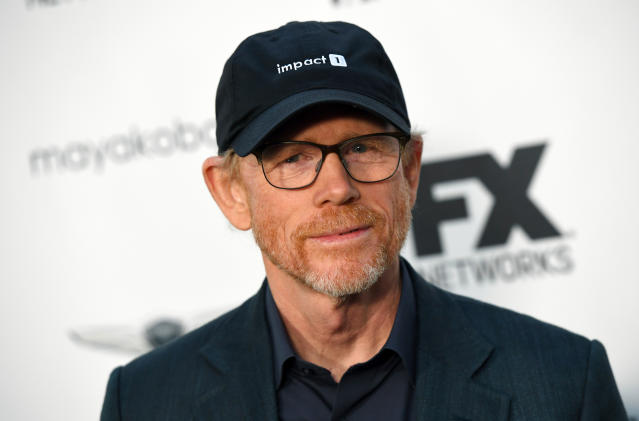
RON HOWARD
Apollo 13, Director; Imagine Entertainment co-chairman
I remember it so well. I was being directed by a then highly esteemed television director named Vincent McEveety, who did 50 Gunsmoke episodes, Star Trek and so many others. I was doing a Wonderful World of Disney two-parter called Smoke, and he invited us to his house where he was having a viewing party. He had a really nice house in the Pacific Palisades and the biggest color television you could get back then. Although the images were in black and white, Walter Cronkite was certainly in color, and I remember it incredibly well. It was this Hollywood family party where we went swimming, had a barbecue and watched the event.
I was inspired by the fact that human beings were going to space, but I wasn’t a kid putting together the hobby kits, gluing together rockets and memorizing the names of things. We were just completely rapt, like everyone else around the world, viewing that moment. I thought of it often when I was directing Apollo 13 and the opening sequence is Jim Lovell, his wife and a number of other astronauts sitting around and watching it on their televisions. It was a moment where I found myself having a flashback.
The thing that I learned spending a lot of time around the Apollo astronauts and the mission controllers, is that while they recognized the risks, they were all fundamentally test pilots and elite engineers. They expected to succeed. They acknowledged the risk but they assumed it was going to work. They had so many contingency plans. It was those contingency plans that ultimately saved the Apollo 13 crew. Certainly, it was very possible that they could fail on Apollo 11, but Apollo 8 had been successful. Apollo 10 had been successful. They were so focused. NASA in that era was like the largest and most cohesive team you could ever imagine putting together of elite scientists, engineers and test pilots. They expected to make it and they did. They were thrilled, but that was the plan. They were supposed to make it.
The intellectual capacity of the Apollo era astronauts, mission controllers and engineers I spoke to was unbelievably impressive to me. When I would begin any kind of research session, more than once it went on into the wee hours as they were explaining how and why things unfolded the way they did. Trying to help me grasp the technical and scientific factors along with the procedures. I would look down at my watch and it would be 12:15, and Jim Lovell or Dave Scott or whoever was trying to help us understand in order to make an accurate, authentic movie, were still going strong. And at that point they were in their mid to late fifties. They just blew me away. The intellectual fitness and capacity was clearly present in everyone who was part of the Apollo program. And the commitment was so clear, that they were doing something important, they had the resources to do it well and by the same token it wasn’t bloated. They were always struggling to be as efficient as they could possibly be. But they were unified and there to get it done.
It’s said over and over, but there are so many social programs, that if our nation put that kind of focus on achievement in those areas, we could solve a lot more than we give ourselves credit for. They came from the mentality of, work the problem. That’s what a test pilot does. If their aircraft is in trouble, they don’t waste a second on panic. They use every second available to them trying to solve the problem and not thinking about what would happen if they don’t. They know what will happen and it doesn’t do them any good. They only think about how to survive, and prevail. That yields a mental toughness and remarkable acuity.
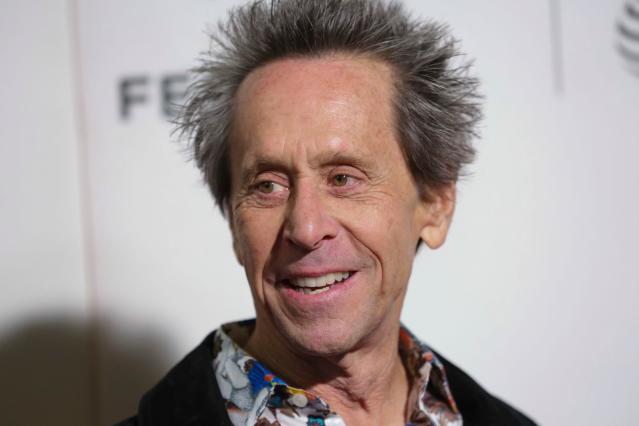
BRIAN GRAZER
Apollo 13, Producer; Imagine Entertainment co-chairman
I was in the graduation class of Chatsworth High and it was incredibly emotional to me. Not that I was highly knowledgeable about aviation and science in the way I learned to be after Apollo 13 and From the Earth to the Moon. I was emotional on a human level.
The reason I produced Apollo 13 was less about aerodynamics in space and science, and more about human capability. Human capability, when it’s optimized on this level, is incredibly emotional to me and I like to celebrate when there is an opportunity.
That moment in time, I was in high school, and I recall being moved to tears. I watched it in Northridge, at my parents’ house, my dad, mom, younger sister and younger brother. My friend and his father came over, he worked in the aerospace business for Lockheed, and he was very plugged in. And Matt, his son, that was my best friend.
At the time in 1969, I had very little understanding of the internal mechanics and variables and possibilities of what could go wrong. After making Apollo 13, and exhaustively grilling the astronauts, Dave Scott and Jim Lovell and others, I learned that lots of things can go wrong. The mission that we made a movie about, it did go wrong. I learned about all those possibilities. These guys are incredibly intelligent, and beyond being physically fit like Top Gun or those test pilots. These guys are usually scientists, with a much higher learning aptitude and understanding of space, mathematics. They are mostly PhD’s, and I would always say, were you scared? The answer was always, No! There was never fear. I could never get one astronaut to say that, even neurologically, that they ever felt fear. I don’t know if that was true or not. Maybe they conditioned themselves to not feel it, or to process it, or maybe they are so connected to the mission that it’s just not in their consciousness.
Literally, what I came out with after doing the movie with Ron and Tom (Hanks), they were sitting on a motor, a jet engine on a launch pad. There is no protection, really. It’s a tin can. It is amazing how courageous these guys are and how patriotic they were at that time. Their motivations for doing it were really patriotic and pure, and I was always impressed and moved by that.
Sign up for Deadline's Newsletter. For the latest news, follow us on Facebook, Twitter, and Instagram.

